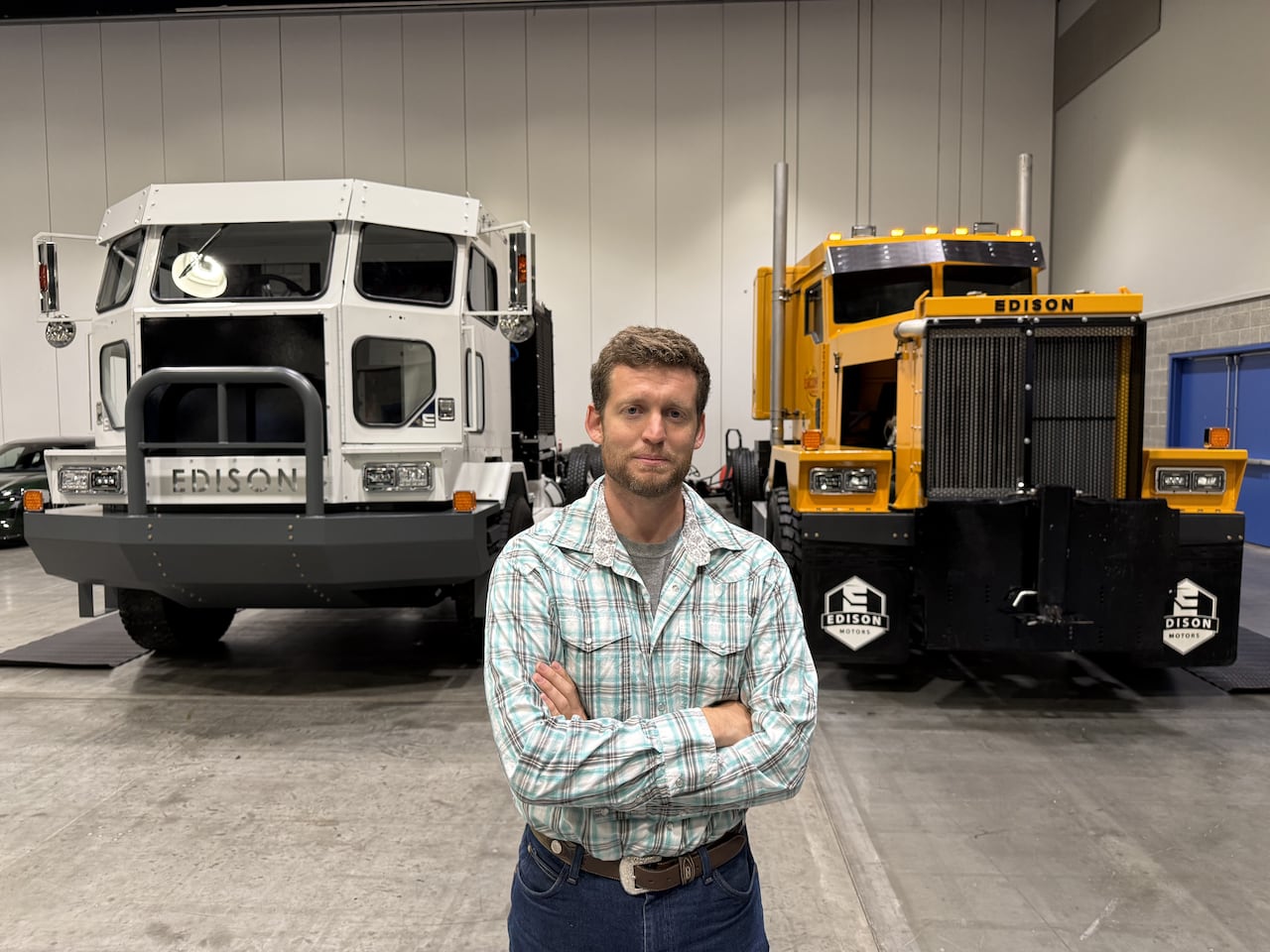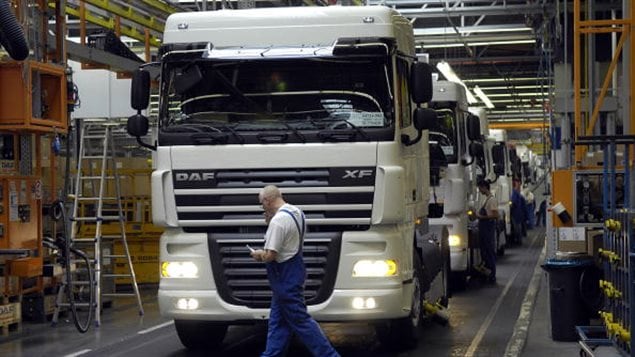Tough times for truck and bus makers as new tariffs go into effect

As a fresh slate of tariffs on heavy trucks and buses takes effect, industry players say the companies that make those vehicles in Canada will be feeling pain.
Starting today, all foreign imports of medium and heavy-duty trucks and truck parts headed to the U.S. will be tariffed at 25 per cent, and buses at 10 per cent. The new rules leave carveouts for trucks traded under the Canada-U.S.-Mexico Agreement, however — the 25 per cent tariff will only apply to their non-American parts.
U.S. President Donald Trump and his administration have justified these tariffs by arguing that relying on imported trucks, parts and buses poses national security risks.
“We need our Truckers to be financially healthy and strong, for many reasons, but above all else, for National Security purposes!” Trump said in a Truth Social post in September when he announced the tariffs (which he initially said would go into effect Oct. 1).
The move means tough times for truck makers that trade vehicles and parts between Canada an the U.S. — like Edison Motors in Golden, B.C., whose president and founder Chace Barber called the new tariffs “disheartening.”

“It's going to be a lot harder to sell into the U.S. right now,” Barber told CBC News. He says a handful of his shipments will be hit by these tariffs, which could add upwards of $100,000 to the cost of the finished heavy-duty semi trucks it makes and sell.
“We can't eat that cost; it has to go on to the customer. We'd be selling trucks for free or giving money away if we ate the tariffs."
Already trouble in trucking industryCompared to other industries, heavy truck and bus production is a small sector within Canada. In 2024, Canada exported about $5 billion worth of trucks to the U.S., and imported just under $9 billion worth, according to Canadian government data.
But Dennis Darby, president and CEO of Canadian Manufacturers & Exporters, says the losses still matter a lot to the 20,000 or so people employed in the sector across the country.
“It's not the same scale as the auto industry … but it has an effect in towns across the country,” Darby said.
Companies like Paccar, which makes big trucks in Quebec, already announced layoffs — 175 jobs were cut in July, and another 300 were announced earlier this month.
“It's … very stressful for our members and their family,” said Daniel Cloutier, Quebec director for Unifor, which represents workers at Paccar’s plant in Sainte-Thérèse, Que. “There's nothing at this moment that gives us a bit of hope. We just cross our finger[s].”
Paccar didn’t reply to CBC News’ request for comment in time for publication.

A spokesperson for bus maker Prevost said the company did not anticipate any “immediate alterations” to production but would continue to assess the tariff impact, while New Flyer also said it was also “carefully reviewing” the new tariffs.
Duties already in place on steel and aluminum — the raw materials used to make many vehicle parts — will add another tariff layer impacting the sector, according to Saibal Ray, a supply chain management professor at McGill University.
Ray points out that smaller manufacturing industries like truck production could suffer more than Canada’s large industries as a result of tariffs. If a factory is making fewer trucks but its overhead costs don’t change, that means each truck would be more expensive to make in that factory, according to Ray. He worries that could eventually drive some companies to close up shop in Canada, especially Quebec where truck and bus production is substantial.
“These tariffs and the associated problems might sound the death knell of some of the smaller industries,” Ray said. "It's very concerning for long-term ... manufacturing in Quebec."
Because Canada does need trucks to transport things within the country, Ray says a “Buy Canadian” push could help bolster domestic truck and bus manufacturing.
That’s Barber’s hope at Edison Motors, too. Given that Canada’s many resource-based industries like forestry and oil need heavy equipment, he says he’s “100 per cent confident” that there’s a market in Canada for the kind of trucks his company makes.
“We kind of had to rethink the way we're doing our business," he said. "Whereas we were looking at the whole North American market, I think it's time that we just need to look at the Canadian market."
cbc.ca





